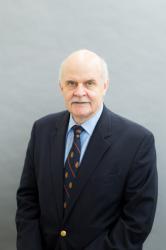This article appeared originally in Forbes. Read the entire article here.
Last week, while visiting the political and business capitals of Brazil, I was able to study the plan for deregulating the Brazilian economy and speak with some of the plan’s architects. The MP da Liberdade Economica (MPLE) the economic freedom provisional measure, has the same standing as any law; it has been signed by President Jair Bolsonaro. In 60 days regulations to implement it will expand its effects. It is the best plan I have seen and evaluated during my long career in policy research and advocacy. It has the potential to liberate the creative capacity of a large percentage of the most punished sector of the population.
The plan eliminates countless regulations and permissions, which has generated strong opposition by the bureaucrats and public servants who many times, with good intentions, have spent decades of their lives trying to enforce them. The goal of MPLE is clearly stated: the debureaucratization and simplification of the regulations affecting small businesses. Most of the deregulatory plans appears in the Article 3 of this law. It has 10 subsections (incisos in Portuguese), which read like the 10 Commandments of economic liberation.
Subsection I puts an end to the requirements for previous authorization to start low-risk economic activities. The opposite policy −“what is not specifically allowed is therefore banned” − has kept scores of potential entrepreneurs out of the economy. In a PowerPoint prepared to explain the law, the government specifically lists some of these small businesses and occupations, such as hair dressers and sewing shops. Two foreign think tanks, the Institute for Justice (IJ) in the United States and the Institute for Liberty and Democracy (ILD) in Peru, can see their policy prescriptions embodied in the MPLE. IJ defended hair braiders against government regulations. ILD started its policy-transforming work with a study showing that, in addition to costs and bribes, a small sewing business in Lima needed 289 days, and required completing 11 steps in order to start operations.
For higher risk businesses, better access to insurance could help. For such to occur, the insurance market also has to be free of paralyzing government mandates.
Subsection II increases the freedom to decide the hours and days of operation. Subsection III establishes that, as a rule, prices will be set by supply and demand. As usual, there are exceptions, such as public calamities or the prices of goods which are already controlled, or cases where practices violate anti-trust laws.
Subsection IV states that any conditions required for one citizen to receive a permit or license to operate a business should apply equally to all. This is a basic principle of just law. St. Thomas Aquinas declared that a law that impose burden “unequally on the community, although with a view to the common good” are unjust. He called them “acts of violence rather than laws.”
To encourage innovation, MPLE establishes a “bureaucratic immunity” for new processes. This again is consistent with the principle that when a business starts something new, like implementing a new technology, bureaucrats should not get in the way.
Speaking about new technologies, so far, at least for Uber and similar ride sharing companies, Brazil has been a friendly territory. Last week, during my visit, the Supreme Court handed a major victory for consumers. It concluded that prohibiting applications for services such as Uber, Cabify and 99 (a local company) is unconstitutional and “violates the principles of free initiative and free competition.” Amen.
Photo credit: Alejandro Chafuen.

